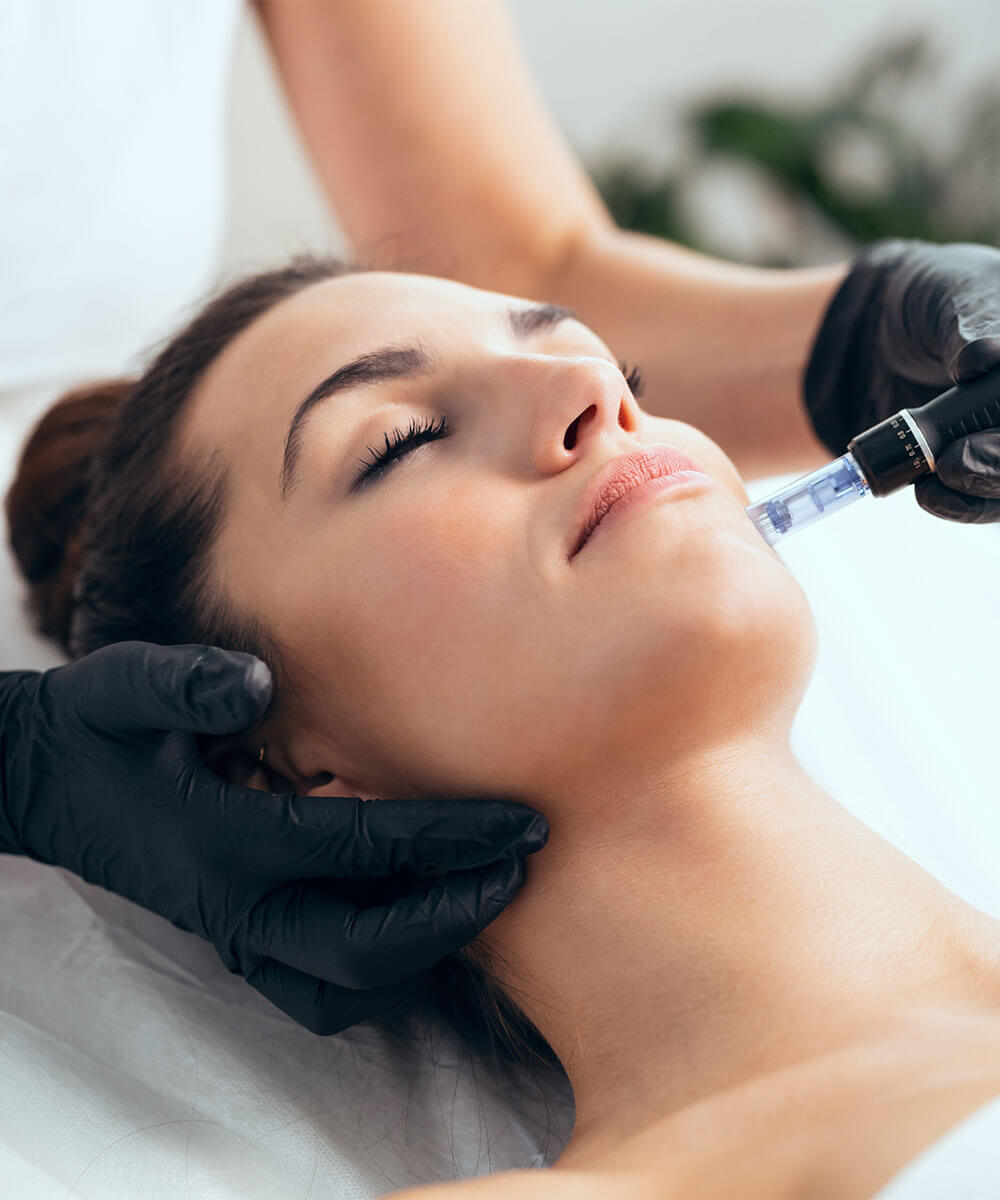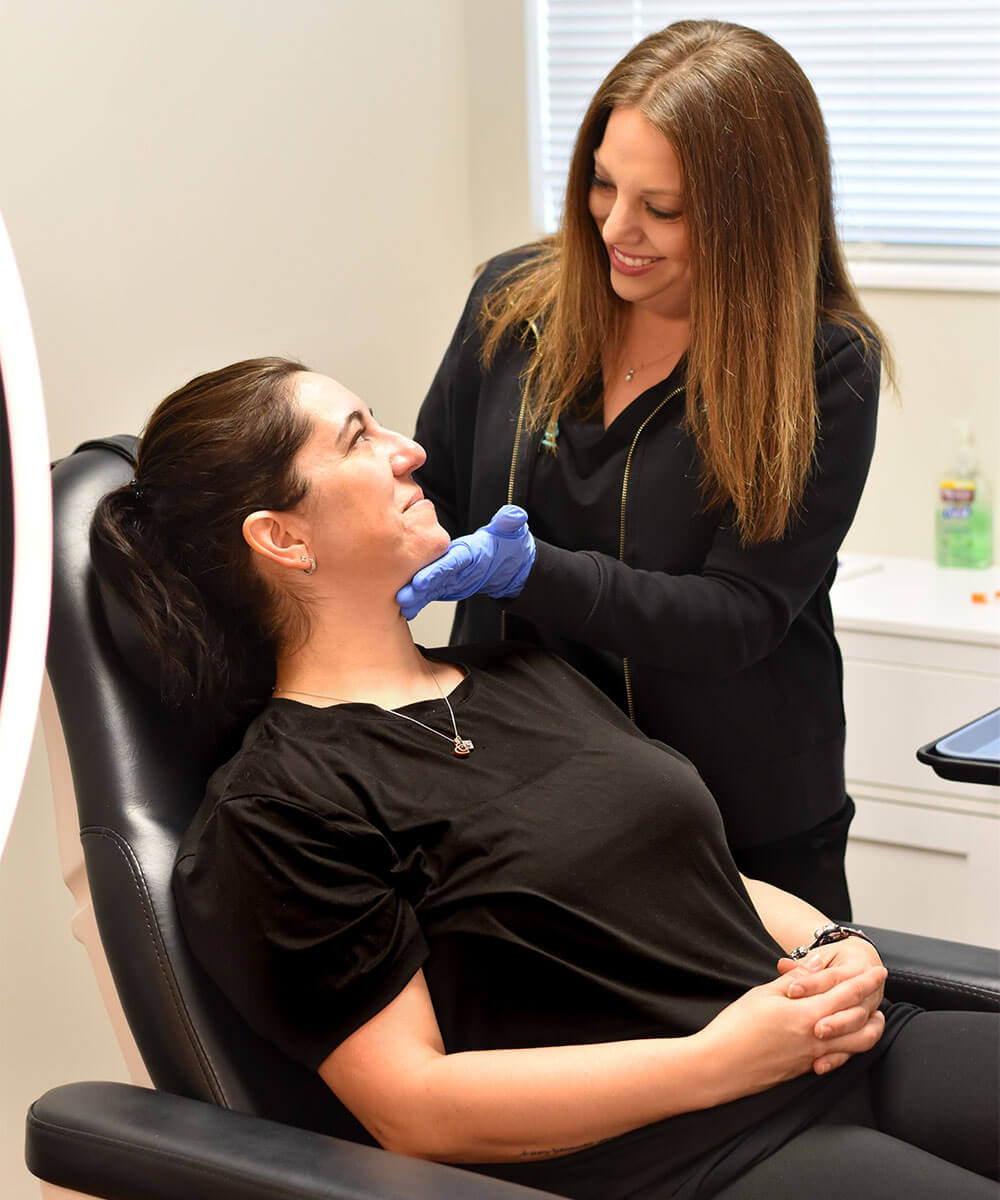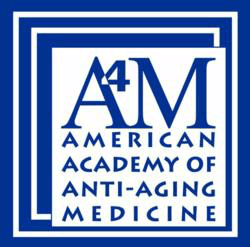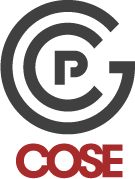
Written by Lauren Lund, APRN-CNP
Reviewed by Laurianne Scott, DO, OBGYN
Last Updated on 06/09/2025
Hormone replacement therapy (HRT) can be life-changing for many women experiencing the effects of menopause or hormone deficiency. Whether you're considering estrogen, progesterone, or testosterone therapy, it's standard clinical practice to ensure certain safety screenings are completed first—most notably, a mammogram. But why is are mammograms so important?
The Role of Hormones with Breast Cancer
Women naturally have estrogen, progesterone, and testosterone. With perimenopause and menopause, these hormone levels tend to decline and can cause a wide array of symptoms. Some women go many years
Some types of breast cancer are hormone receptor-positive, meaning they are fueled by hormones such as estrogen or progesterone. This means the presence of these hormones in the body can promote the growth of malignant cells - aka encourage cancer growth and spread.
When exogenous hormones (those taken as medicine / therapy) are introduced, they can stimulate the growth of existing hormone-sensitive tumors, even if they are too small to be detected by touch or symptoms. Starting hormone therapy without a baseline mammogram could potentially accelerate the progression of an undetected cancer.
According to The North American Menopause Society (2022):
"The mortality risk of breast cancer in hormone therapy users has been reported to be reduced in many but not all observational studies. The breast cancers in hormone therapy users (estrogen therapy and estrogen progesterone therapy) appear in most (but not all) studies to have more benign histologic features (localized, smaller, better differentiated, lower mean tumor proliferation rate) than in hormone therapy non-users. The most recent study, using a large data registry in Finland and comparing populations rates, reported a reduction in breast cancer mortality in users of both estrogen therapy and estrogen progesterone therapy. A confounding factor in all these studies is that hormone therapy users undergo more frequent mammograms and diagnostic examinations, especially with occurrence of signs or symptoms. This is likely to result in earlier diagnosis and therefore more benign histologic features and lower mortality."
What does a Mammogram Entail?
A mammogram is a specialized low-dose X-ray of the breast that helps detect abnormalities or early signs of breast cancer. During the exam, the breast is gently compressed between two plates to spread the tissue for clearer images. This allows radiologists to identify small tumors, calcifications, or structural changes that may not be felt during a physical exam. Mammography is the gold standard for breast cancer screening because it can detect cancers at an early, more treatable stage—often years before they would cause symptoms. For most women, it is a quick, safe, and highly effective way to monitor breast health.
What Can Mammogram Results Tell Us
A mammogram provides a detailed internal view of breast tissue, identifying early changes that may not yet be palpable or symptomatic. It can detect:
- Early-stage cancers
- Ductal carcinoma in situ (DCIS)
- Calcifications and other suspicious changes
- Breast density (which may influence screening protocols)
Having this information allows providers to tailor hormone therapy appropriately—or to delay or avoid it if there's evidence of a developing malignancy / cancer.
Personalized Risk Assessment
In addition to a mammogram, many providers perform a complete breast cancer risk assessment before starting HRT. We often recommend using this FREE tool called Tyrer-Cuzick Risk Assessment Calculator to screen your breast cancer risk. This may include:
- Family history and genetic predispositions (such as BRCA mutations)
- Personal history of breast biopsies or atypical cells
- Lifestyle factors like alcohol use and BMI
Combining mammographic imaging with a thorough clinical evaluation ensures that hormone therapy is as safe and effective as possible for each individual.
Guidelines for Mammograms and Hormone Therapy
The North American Menopause Society (NAMS) and Endocrine Society both recommend breast cancer screening prior to initiating HRT. A screening mammogram within the past 12 months is typically required, especially for women aged 40 and older or those with a family history of breast cancer.
In a 2017 position statement from NAMS, it was emphasized that women should be screened according to national guidelines before beginning hormone therapy, and that any abnormal findings should be thoroughly evaluated before proceeding.
Screening Recommendations:
A screening mammogram is recommended for women:
- Yearly
- For those ages 40 and over
- Who are not experiencing breast problems
- Who haven’t been sent by a provider for additional imaging
A diagnostic mammogram is recommended for women who have a clinical complaint such as a palpable lump, focal breast pain, nipple discharge or recent breast skin changes.
FAQs on Mammograms
I'm scared that getting mammograms will expose me to radiation. What should I do?
Mammogram screenings do use radiation. Mammogram radiation is highly regulated by the Food and Drug Administration, Mammography Quality and Standards Act and other organizations, like the American College of Radiology. There is constant background radiation in the world that we are exposed to every day. The average American is exposed to about 3 mSv (millisieverts) of radiation from natural sources over the course of a year. The largest source of background radiation (typically about 2 mSv per year) is radon, a natural gas found in our homes.
- A mammogram exposes a woman to 0.4 mSv.
- The radiation dose from a mammogram is equal to about 7 weeks of background radiation for the average woman.
- The radiation you receive from a mammogram is equivalent to the amount you are exposed to as a result of a transatlantic flight.
My last mammogram was fine so I don't need another one, right?
Incorrect. You are recommended to get a mammogram every year after the age of 40. You may be recommended to start mammogram screenings earlier pending your family history or other risk factors.
I do self breast exams so I don't need a mammogram.
False! Breast self-exams aren’t that reliable. Just because you or a provider doesn't feel anything doesn’t mean you don’t have breast cancer.
Conclusion
A mammogram isn’t just a box to check—it’s a critical step in ensuring your safety before beginning hormone replacement therapy. Because certain breast cancers are driven by hormones, we must be proactive in screening for any early signs of malignancy. This allows you and your provider to make informed decisions about your health, balancing the benefits of hormone therapy with the need for cancer prevention.
If you're considering hormone therapy and haven’t had a recent mammogram, talk to your healthcare provider about scheduling one. It’s a simple but powerful way to protect your long-term health while reclaiming your hormonal balance.
_____________________________
Citations:
- https://menopause.org/wp-content/uploads/professional/nams-2022-hormone-therapy-position-statement.pdf
- https://www.cancer.org/cancer/diagnosis-staging/tests/imaging-tests/understanding-radiation-risk-from-imaging-tests.html
- https://www.uhhospitals.org/news-and-media/3-mammogram-myths-debunked
- https://www.bjc.org/news/are-mammograms-effective-debunking-myths-about-diagnosing-breast-cancer
The information provided in this blog post is for informational purposes only and is not intended as medical advice. The content shared here is based on general wellness principles and is not a substitute for professional medical evaluation, diagnosis, or treatment. Always consult with your healthcare provider before starting any new supplement regimen or making changes to your current health plan. This blog does not establish a patient-provider relationship, and the opinions expressed are solely those of the author. Please seek the guidance of your physician or another qualified healthcare professional for any medical concerns you may have.







